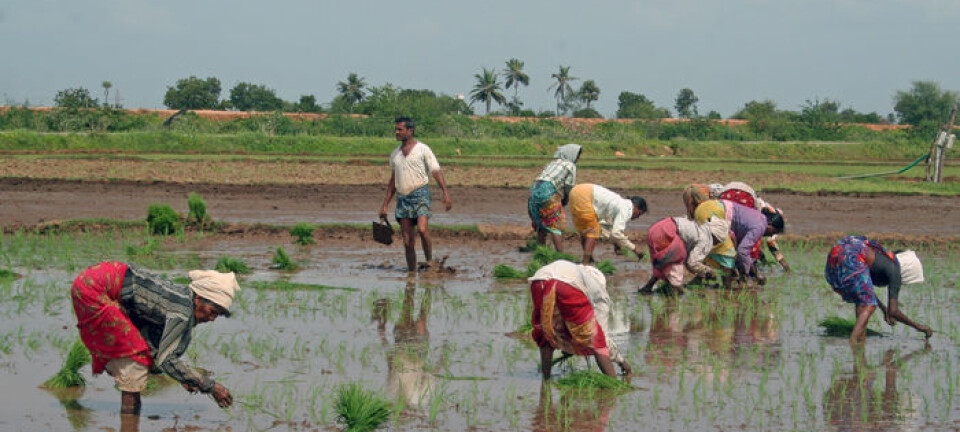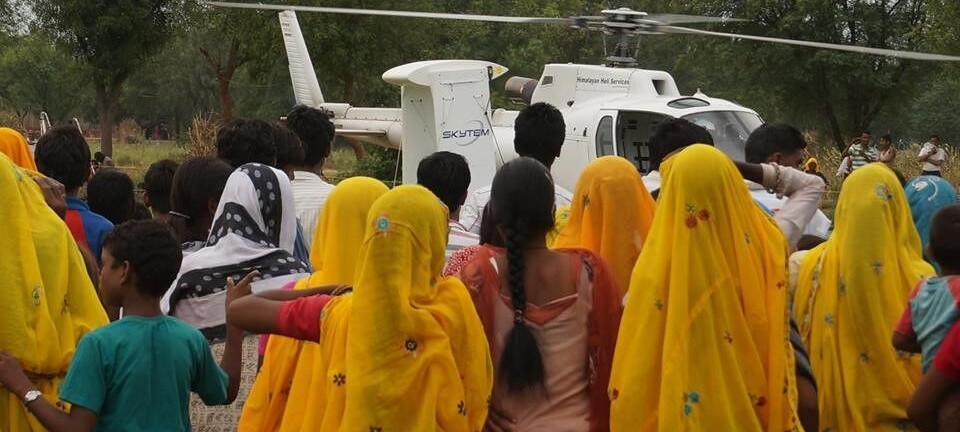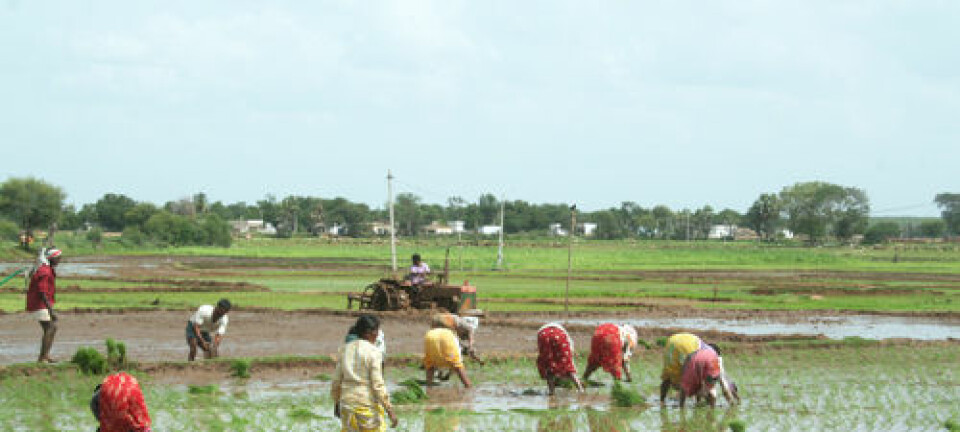This article was produced and financed by Norwegian Institute for Agricultural and Environmental Research
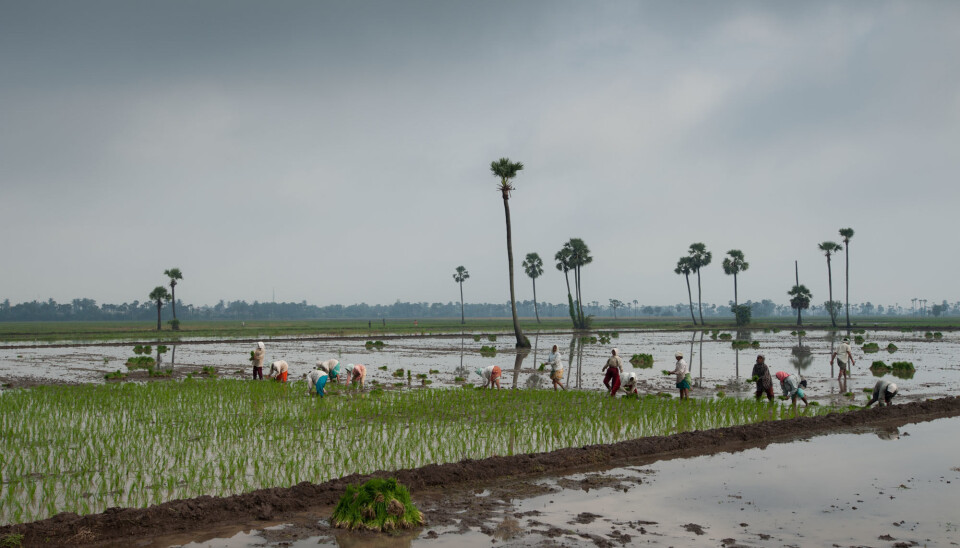
Researchers as icebreakers
Objective research serve as icebreakers and basis for dialogue between stakeholders in water conflicts.
Denne artikkelen er over ti år gammel og kan inneholde utdatert informasjon.
Senior researcher Per Stålnacke from Bioforsk conducts research on integrated water resources management in Europe and Asia. He emphasises the importance of making research understandable to representatives from all the affected sectors.
“When we present data in an objective and holistic fashion, we can act as icebreakers,” he says.
“In addition, neutral information based on actual research results gets people talking, which are another key component.”
Stålnacke explains that by involving stakeholders, they can build trust by making people understand that the research team has a genuine interest in solving their specific problems.

They adapt the projects to the stakeholders’ actual needs.
From grass root to government
“We integrate science, policy and capacity building,” says senior researcher Nagothu Udaya Sekhar from Bioforsk.
He has broad research experience from Asia, focusing especially on agriculture and water management in India.
“In our projects we put this into practise through active stakeholder advisory committees, which are formalised through government approval,” he says.
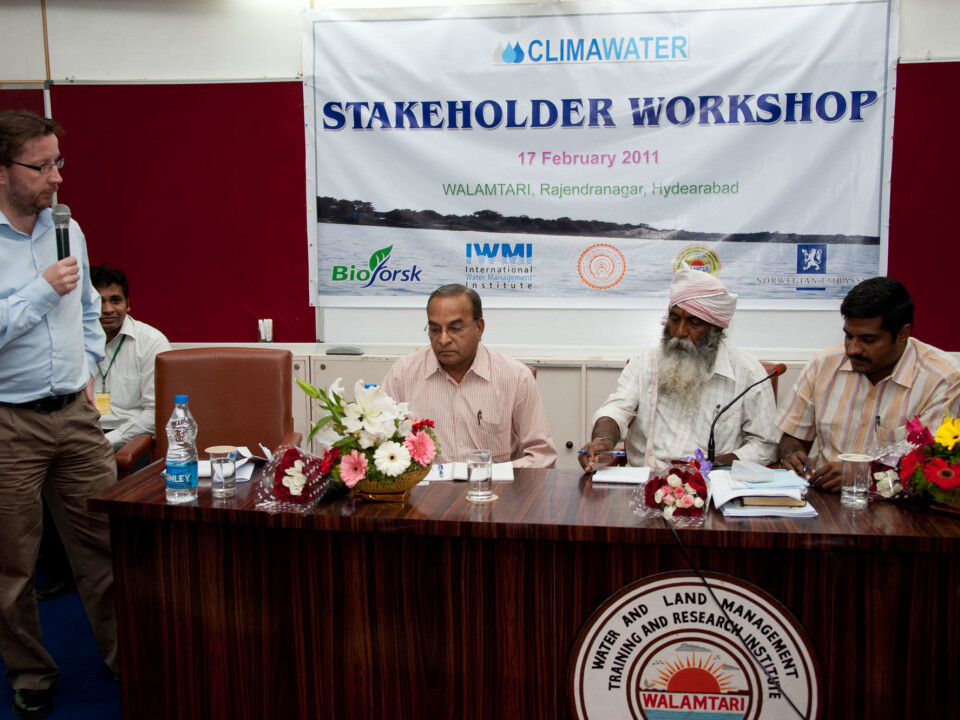
The committees are unique as their members consist of stakeholders ranging from local farmers and village representatives, to regional and national policy makers.
“We work with these groups right from the start of the project, through the development stage, and all the way to the end of the project. We ask them for inputs and critical feedback throughout the entire process,” says Sekhar.
Crucial capacity building
Government officials also give their approval of the project proposal before the project begins. Sekhar emphasises that this is a key component to succeed in upscaling the results.
“If you want to upscale a new technology, you need to lift it to the policy level, and as we already have the policy makers on board, the process becomes much easier.”
Sekhar believes that capacity building is another essential key to success, and to ensure sustainability of the project results.
“If you come up with a very smart water saving technology, there is no guarantee that the government likes it, or that the farmers will be able to make use of it,” he says.
“Our main challenge is how to customize our research and adapt it to the needs of small-scale farmers.”
These days, there is a growing international recognition that research often fails to solve the problems of target groups, due to a lack of target group involvement.
Per Stålnacke notes that it appears to be an increasing demand in EU-projects to involve stakeholders throughout the entire process.
“Internationally, within water and pollution research, it is very common to have an advisory group. However, the group is rarely included in project activities before towards the end of the project. It is relatively unusual to involve target groups as early as we do,” says Stålnacke.
Untapped potential for development research
The Norwegian Agency for Development Cooperation (Norad) is interested in linking Bioforsk’s experience in India and Asia with sub-Saharan Africa in areas related to food security, in particular sustainable and climate smart rice production systems.
“We wish to explore how our experiences from South Asia are useful to the situation in Africa, especially in rice production,” says Sekhar.
Per Stålnacke believes there is untapped potential to increase the cooperation between research and development institutions.
«This is clearly something we are passionate about; we have learned that we can actually be of aid to society, and that is among other things interesting from our point of view as researchers.”







